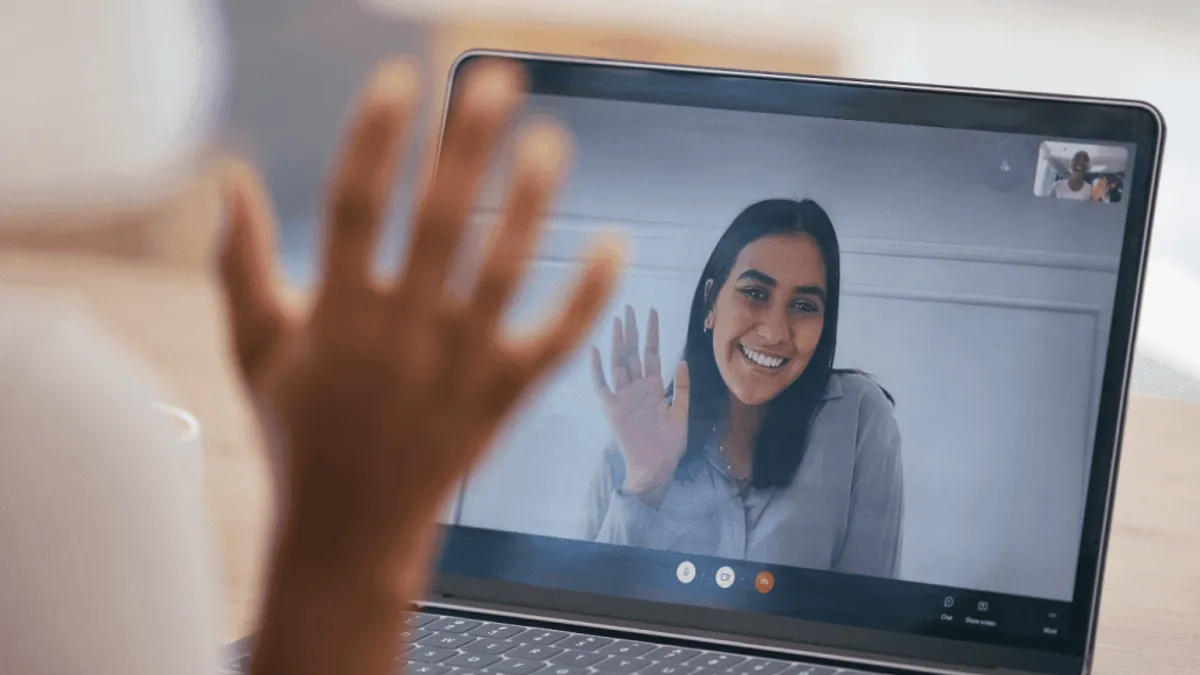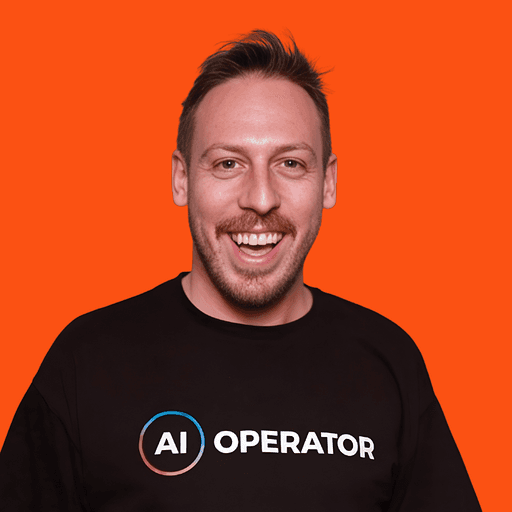Discover how AI transforms recruitment with faster screening, reduced bias, and lower costs. Explore top tools and balance AI with the human touch in hiring.
When it comes to recruitment, the daily grind of HR teams is no joke. Luckily, AI in recruiting now makes their load a lot more bearable.
Recruiters and hiring managers have to pour through heaps of resumes, follow up on a flood of dead-end leads, and put up with hours of back-to-back interviews and evaluations. And just when they think the work is done, they’re left with the unenviable task of sending out the dreaded “We regret to inform you” email.
AI eases this burden by seamlessly streamlining and optimizing the hiring process to ensure that you get the right candidate for the right job at the right time. Think of it as your HR team’s hyperintelligent, all-around helper for all things related to hiring, from applicant screening up to onboarding support.
At first glance, AI and the recruiting process may not seem like they go hand-in-hand—but AI is a game-changing strategy you can leverage to transform your entire process.
In fact, it is already making waves. A vast majority (88%) of companies from all over the globe have already incorporated AI in their human resource strategies. With the global market value of AI recruitment poised to reach a whopping $942.3 million by 2030, it looks like more will be joining the bandwagon.
The AI advantage in recruitment

As the term suggests, artificial intelligence is how technology artificially mimics human thinking to automate manual jobs. It enables machines and software to learn and make decisions much in the same way as humans do. Through machine learning, AI is trained to perform tasks that typically require human intelligence, like recognizing patterns, understanding languages, making predictions, and even carrying out conversations.
How can this help you in your hiring efforts? To break it down, let’s take a closer at the key benefits of artificial intelligence for recruiting.
1. Efficiency on a different level
In the cutthroat world of recruitment, time dictates your success. Every moment wasted flipping through resumes is a lost window of opportunity—a top-notch talent slipping through your fingers and into the arms of your competition. On top of missing out on potential employees, you’re also bleeding out money in the tedious back-and-forth of a long and complicated recruitment process.
However, if you also just hurry through the process, this can result in human error and missing out on top talent.
Fortunately, AI-powered recruiting speeds up the hiring process and recruiting process by matching potential candidates to job roles and automating routine tasks in record time. For example, sending out calendar invites and interview reminders can now be delegated to AI instead of having to do them manually.
Hilton, a giant in the hospitality industry, is a great success story for this. The company adopted AI in its recruitment. With software analyzing candidate data, its hiring rates rose by 40%. What’s even more astonishing is how their hiring or replacement time dropped by 90%.
2. Objective judgment
As the adage goes, ‘Different folks, different strokes.’ Having biases is absolutely natural. We may favor a certain candidate because we came from the same university, or the same state, but this shouldn’t get in the way of objectively finding the best candidate.
A vast majority (68%) of recruiters agree that AI effectively eliminates partiality in recruiting. As a non-human entity, AI focuses solely on a candidate’s qualifications and credentials, minimizing unconscious biases that typically affect our decision-making. With AI on your side, you can ensure that your hiring decisions are free from any form of prejudice.
3. Data-driven decisions
With its unique ability to extract actionable insights and pave the way for strategies, data is considered the new oil of the digital era.
The recruitment sector, in particular, stands to benefit highly from this. From employee demographics to job acceptance rates, data gives you a bird’s eye view of the recruitment landscape. You can also use AI tools to get a glimpse into candidate behavior and preferences for a much-needed edge against the competition.
Why not take a page from the playbook of Fortune 500 companies? Nearly 97.4% of them use data from applicant tracking systems (ATS) to gain insight into job-seekers.
4. Reduced costs
AI is a double-edged sword. Apart from driving efficiency, it can also cut down your cost-per-hire. The numbers speak for themselves. Artificial intelligence reduces the cost of screening candidates by a hefty 70%. What’s more, by helping businesses find more suitable candidates, AI has also helped businesses splice employee turnover by 35%.
How can AI powered recruitment achieve these compelling results? By handling repetitive tasks, AI helps your business save up on operating and overhead costs—allowing you to channel more of your finances to strategic initiatives.
5. Seamless scalability
If we can take away one thing from the pandemic-driven job losses, the subsequent Great Resignation, and Quiet Quitting phenomena, it’s that the job market is extremely volatile—plagued by unpredictable peaks and valleys.
Fortunately, you can rely on artificial intelligence for the recruitment process to ride the tide. AI allows you to scale up and down with demand, so you can effectively keep pace with the ever-changing job market. Thanks to its ability to handle massive volumes of data, you can immediately shift gears to mass hiring when demands peak. And when you’ve filled your slots, you can seamlessly scale back without wasting any resources.
How artificial intelligence for recruitment streamlines the screening process

Candidate screening is easily the most time-consuming part of recruitment. It’s not just about shortlisting ideal candidates. Your HR team is essentially trying to find one shiny needle in a haystack. It’s not just eating up time, it also takes a toll on your bottom line.
This is where AI comes in. This powerhouse tool supercharges your efficiency, allowing you to narrow down your talent pool to find the best candidates in the fastest time.
Bias reduction and fair hiring
Leaving the screening process up to your employees creates room for error.
Picture this: Someone from your HR department decided to shortlist a candidate that they referred. As it turns out, the candidate is unqualified for the position. But they had already gone through three cycles of interviews before it became clear.
This translates to wasted resources on your end. What’s worse, they took up the spot that should have been given to a more qualified candidate. You could have even missed out on meeting a potential employee. All this could have been easily avoided if you leveraged artificial intelligence for recruitment to screen your candidates (at least at the first levels)—no emotions or relationships involved, just purely matching candidates with your criteria.
Enhanced candidate experience
Streamlining your screening process with AI is not just about cutting down on time-to-hire and cost-per-hire. Ultimately, it’s about securing people with quality talent who fit perfectly with your company culture and brand. The key to achieving this is building meaningful relationships through an exceptional candidate experience.
For 72% of job-seekers, the interview can make or break their decision to accept an offer. But, remember, the candidate’s journey isn’t just about the interview. It spans across the entire application process, from the moment they find out about your opening to the moment they are onboarded. This includes follow-ups and answering inquiries.
The ideal experience for candidates warrants personalized touchpoints. But this can be taxing for your team, especially when they’re dealing with hordes of applicants. With NLP-powered (Natural Language Processing) chatbots and AI content creation, you can provide instant replies and create an engaging experience for your applicants without overburdening your staff.
Strategic decision-making
Recruitment involves a lot of decisions. Where do you announce your opening? When is the most strategic time to hire? Who do you target? And of course, who do you get on board?
AI can help with all of these concerns. Leveraging its ability to crunch numbers and serve up actionable insights, AI helps you make better, data-driven decisions for a competitive advantage in the hiring game.
It lets you know the most strategic platforms and the best time to hire for the widest reach, ensuring only the best outcomes for your recruitment initiatives. Artificial intelligence for recruitment also helps you stay on top of hiring trends so you can snag top talent without spending too much of your resources. Moreover, it helps you avoid costly mistakes that could drag out your screening process.
Continuous learning
AI is not stagnant, it’s constantly evolving. With each candidate touchpoint and each screening cycle, your tool is gradually learning and updating its understanding of what constitutes the best-fit skills for your specific roles.
That’s the beauty of AI—the more you use it, the sharper it becomes. AI learns from your past hires and success stories, actively identifying patterns to quickly spot top candidates.
Improved candidate matching
While AI-powered recruitment accelerates screening, it doesn’t compromise quality. With its deep understanding of your workforce needs, it uses massive datasets to zero in on candidates with skills and qualifications that would align perfectly with your business.
Having AI as a strategic ally in your screening process leads to an ultimate win-win-win situation for everyone involved—the company, the HR department, and your future employees.
Top 3 AI-powered tools that help redefine candidate screening
- Arc: This ChatGPT4-powered AI marketplace automates resume screening and provides a refined shortlist of top candidates from their platform of roughly 250,000 developers.
- Beamery: Going beyond credentials, this cutting-edge AI-fueled hiring platform makes use of advanced algorithms to screen candidates based on their skills and potential.
- Humanly: On top of screening candidates, this AI-powered recruitment tool and hiring platform is also capable of automatically arranging interviews and validating references.
Challenges and concerns of using artificial intelligence for recruitment

As we usher in the new era of AI-fueled recruiting, we need to address the issues that come with its implementation. Read on as we explore the potential hurdles surrounding the issue—and more importantly, how we can navigate these challenges.
Data privacy and security
As the volume of data soars, the threat of cyberattacks and breaches also intensifies. With the average cost of data breaches estimated to be $4.45 million, strong security measures are imperative to protect company data.
This issue is two-pronged. You need to safeguard your candidate’s data, but at the same time, you also need to be wary of malicious entities posing as applicants to hack into your system. While AI tools come equipped with robust security measures, they are not immune to attacks.
SOLUTION: Beef up your data privacy and security policies to prevent breaches.
Anxiety over job displacement
With as much as 77% of people worried that job loss will happen in the next year, this is probably one of the most common but unfounded fears about artificial intelligence. Research, however, suggests otherwise. Instead of taking jobs from people, the World Economic Forum revealed that the AI revolution stands to add an astounding 97 million jobs to the global economy.
DISCLAIMER: Rest assured that even if your company decides to adopt AI in recruitment, your recruiters and human resource personnel need not worry about their jobs.
Lack of transparency
For most people, AI algorithms can feel like a black box. We may know how it works in theory, but its practical workings still come as a puzzle. Without a clear understanding of how AI analyzes data and makes decisions, it’s understandable why doubt lingers and some people remain apprehensive about integrating artificial intelligence in the recruitment process.
SOLUTION: Do your due diligence and learn the intricacies of the AI tools you plan on using. Be honest with candidates and applicants that you are using AI tools for certain parts of the hiring process.
Skill gaps and training
Skills shortage is the most significant (34%) factor that stands in the way of businesses adopting artificial intelligence. While most businesses can afford the technology, some do not have the in-house staff to maintain the software and ensure that they are maximizing all of its features.
DISCLAIMER: AI providers come equipped with tech-savvy support teams capable of troubleshooting and providing guidance. So you are guaranteed to always get the most out of your AI investment.
As with any technology, AI-driven recruitment comes with untapped potential, but it is also fraught with complexities. Ultimately, it’s our commitment to responsible and ethical implementation that will define its true impact—an efficient, employee-centric recruitment process that centers on inclusivity and fairness.
The human element in AI-powered recruitment

Whether we like it or not, AI-fueled recruitment is here to stay. Businesses need to keep pace with change or risk losing employees to their more forward-thinking competitors. But does this mean that human recruiters would be rendered obsolete? Not at all.
AI for recruitment is not a robot vs. people narrative. These cutting-edge tools are only meant to complement our HR team, not replace them. Even with its advancements, the human touch remains crucial in AI-powered recruitment, here’s why.
The emotional intelligence of humans is unparalleled
AI may deliver speed, efficiency, and accuracy but it lacks a special trait that only humans possess: empathy. Remember that recruiting people is about building connections.
While they excel at crunching numbers, it’s humans who understand emotions. Recruiters personalize the candidate experience, adapting their approach to meet candidates where they are, making them feel valued and understood. From initial contact to onboarding, we offer emotional support. We can sense when a candidate needs encouragement, guidance, or just a friendly voice—that’s a superpower that no AI can replace.
AI doesn’t have contextual understanding
Imagine having a candidate come into an office for an interview. You immediately notice that they are uneasy and seem to be stuttering. That’s when you glance at the open window beside them and surmise that there must be a draft of wind coming in. AI might process this as ineptitude, missing the subtle nuances that you grasp effortlessly.
This may be a simple example but it shows how you understand the context behind a candidate’s experiences, motivations, and aspirations, providing a holistic view of whether or not they are an ideal match.
Decision-making and judgment process are different
Sure, AI can narrow down the list to three equally qualified candidates with matching credentials. But when it comes down to the wire, it’s your HR team who will make the final call. Beyond qualifications, they are able to weigh factors such as cultural fit, potential, and long-term compatibility—elements that go far beyond AI’s capabilities.
Humans have a better understanding of ethical and responsible hiring
Ethical judgment and accountability are two more reasons why your HR team’s oversight is crucial in AI-fueled recruitment. They ensure fairness, mitigate biases, and make morally sound decisions, all of which are crucial in responsible hiring practices.
Take, for instance, Diversity, Equity, and Inclusivity (DEI) initiatives. You need your HR team to ensure these policies are properly implemented. Unlike AI, your team deeply understands the importance of diverse perspectives, bridging gaps, and ensuring fairness.
Transform your recruitment with cutting-edge AI solutions

Recruitment is all about people and AI isn’t here to change that. It’s only here to give us the tools to make those human connections even stronger. AI helps us cut through the noise and focus on what truly matters—finding the most promising candidates.
As you navigate the treacherous landscape of high-stakes hiring, leave the routinary things to AI while you build relationships and create truly meaningful experiences with your future employees.
AI Operator is here with you every step of the way. We specialize in fine-tuning specific prompts that will take your recruitment game to the next level. Reach out to us today!
More Articles

Zapier: How to build AI-powered automations in less than one hour
Build AI-powered Zapier automations in under an hour. Step-by-step guide to automate emails, leads, and workflows with AI intelligence.

Claude for work: How to use Claude Skills and Artifacts to 10x team efficiency
Learn how to use Claude Skills and Artifacts to automate team workflows. Step-by-step guide to building reusable tools without code for 10x efficiency.

AI Connectors 101: Turn your LLM into a business powerhouse
Connect ChatGPT and Claude to your business tools like Gmail, CRM, and Notion. Learn how AI connectors automate workflows and save hours per week.

